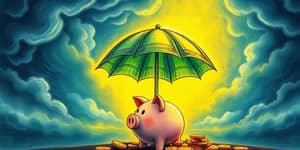
Money can feel like a mysterious force, guiding many of our life choices. Yet, when you learn to understand its language and rhythms, it becomes a powerful ally. make informed financial decisions hinges on grasping fundamental concepts and embracing lifelong learning.
In this article, you’ll discover practical strategies, inspiring stories, and global insights to unleash your money mastery. Whether you’re just starting out or seeking to refine your expertise, every step you take will build confidence and pave the way to real financial freedom.
At its core, financial literacy is the ability to manage income, control expenses, and plan for the future. It involves more than balancing a checkbook—it means envisioning plan for a secure financial future and taking deliberate actions toward that goal.
True literacy empowers you to:
Five timeless principles form the backbone of money mastery. Embrace these pillars to cultivate healthy habits and avoid common pitfalls.
Knowledge alone isn’t enough—action bridges the gap between theory and transformation. The following strategies will help you transform financial knowledge into action and see tangible results.
1. Leverage free online resources: Visit reputable sites offering calculators, articles, and tutorials. 2. Adopt a budgeting framework: Choose a rule that aligns with your goals and lifestyle. 3. Enroll in courses: Community colleges and online platforms offer structured learning and certification. 4. Seek professional guidance: A financial advisor can tailor advice to your unique circumstances.
This comparison helps you decide whether to prioritize savings aggressively or allocate more toward discretionary spending. Regardless of the rule, consistency and periodic review are key.
Financial literacy isn’t just a personal pursuit—it’s a legacy you pass on. Programs for youth have demonstrated remarkable success when they employ experiential learning methods like role-playing and simulations.
To empower the next generation financially:
Worldwide, only about a third of adults are considered financially literate. This gap is influenced by socioeconomic factors, education quality, and cultural norms.
Yet, when individuals gain financial knowledge, they exhibit improved financial behavior: saving more, comparing prices carefully, and planning for the long term. Governments and NGOs are increasingly rolling out policy initiatives to foster inclusion, such as mandatory school programs and subsidized workshops.
Certain groups face unique challenges in accessing financial education. Digital divides, gender disparities, and income inequalities can all hinder progress. Recognizing these obstacles is the first step toward building equitable access to resources.
Key actions include:
How do you know your efforts are paying off? Track metrics such as debt-to-income ratio, emergency fund levels, and credit score improvements. Regularly reviewing these indicators ensures you stay on course and adjust strategies when necessary.
Celebrate small wins—like paying off a credit card or reaching a savings milestone. Each achievement fuels motivation and fosters a cycle of positive financial habits.
Financial literacy is not a destination but an evolving path. Technologies, markets, and life circumstances shift over time, calling for continuous learning and adaptation. Embrace curiosity, seek out new tools, and connect with mentors.
As you deepen your understanding and refine your strategies, you’ll unlock greater independence, resilience, and confidence. Your journey to money mastery has already begun—now, take the next step and unleash the full potential of your financial future.
References













